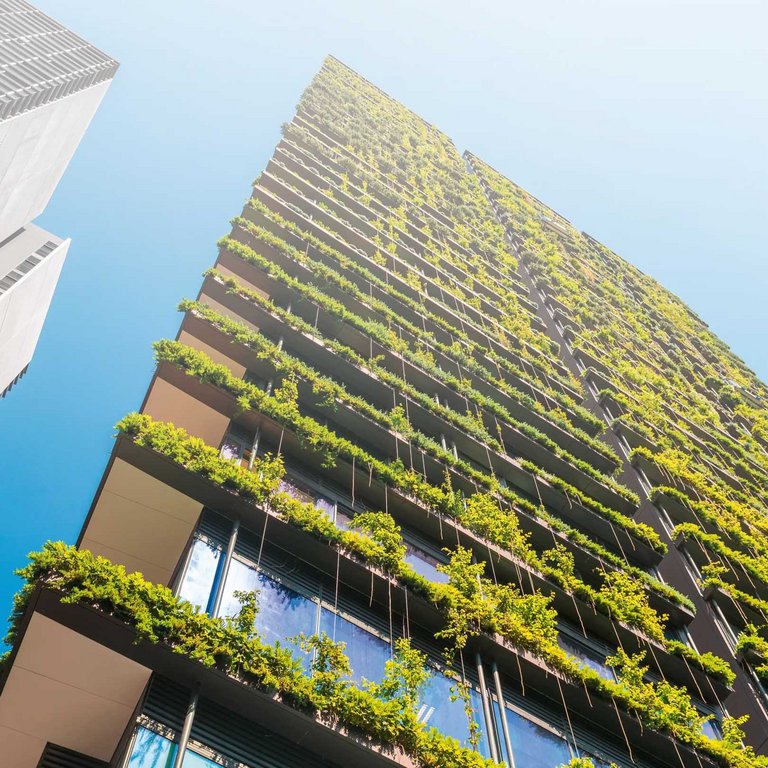Sustainability at Sika
Sika’s strong performance is founded on the company’s entrepreneurial philosophy and the Sika Spirit, which is a synonym for the set of five values and principles that make up the DNA and culture of the company: Customer First, Courage for Innovation, Sustainability and Integrity, Empowerment and Respect, and Manage for Results.
Sustainability Strategy 2019–2023
Sika is driven to maximize the value of its solutions and contributions for all stakeholder groups, while simultaneously minimizing the risks and resource consumption associated with value generation. With the Sustainability Strategy 2023, Sika pursued six strategic target areas, focusing on Climate Performance, Energy, Waste/Water, Community Engagement, Occupational Safety, and Sustainable Solutions.
Performance 2019-2023
–41.8%
reduction of GHG emissions per ton sold (scope 1 and 2)1. The GHG emission intensity reduced by -11.3 kg CO2eq.
1 Market-based emissions
–38.4%
reduction in water consumption per ton sold. Water consumption per ton sold decreased by -0.13 m3.
–31.0%
reduction in the number of Lost Time Accidents (LTAs). LTAs per 1,000 FTEs decreased by -43.9%.
Strategy 2028
In October 2023, Sika released the new Strategy 2028, “Beyond the Expected”, which is based on four pillars: Market Penetration, Innovation & Sustainability, Acquisitions, and People & Culture, including a set of both financial and non-financial targets. With these pillars, sustainability comes into further focus.
SBTi Targets Validation and Net Zero Roadmap
In October 2023, Sika submitted its emissions reduction targets in line with the latest SBTi criteria, following its official commitment in September 2022. The validation process will take place in the first half of 2024.
In 2022, Sika communicated a high-level roadmap identifying main targets and key levers to achieve net zero. Sika’s commitment focuses on two time horizons for both scope 1 and 2 as well as scope 3 with a near-term interim target in ten years, and a net zero target by 2050. All targets are defined with 2022 as a baseline. For a high-growth company like Sika, this is an ambitious goal. It will require active collaboration with all stakeholders.




